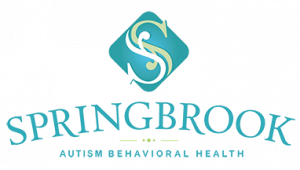Occupational Therapy and Sensory Integration for Autism and Related Disorders

Our autism occupational therapy program addresses both the developmental delays and the sensory processing difficulties associated with autism spectrum disorder. Children and adolescents with autism process sensory information much differently, and at different speeds, than their peers. Studies estimate that up to 70 percent of children with autism struggle to process sensory input, and many also have difficulty filtering out irrelevant sensory information, which can lead to trouble focusing, sensory overload, meltdowns, withdrawal, and even complete shutdown.
Productive Treatment Of Autism Takes A Team
Our occupational therapy program aims to help children and adolescents with autism develop specific skills such as handwriting, fine motor skills needed for daily activities like feeding and dressing, procedural skills, and social participation skills. We consider your child holistically when we design our programs, assessing the physical, emotional, sensory, social, and cognitive abilities and needs of each student in our program.
We work on sensory integration and sensory modulation in conjunction with other occupational therapies, since sensory processing disorders are often the root cause of under-developed motor skills, the inability to focus, the inability to participate, poor impulse control, and aggressive and maladaptive behaviors that can be associated with autism. One of the main goals of our occupational therapy program is to understand your child’s sensory processing disorders—and to design an individual program that addresses them to help enforce self-regulation.
Specialized Programs For Autism In Children
Occupational therapy sounds formal—but the therapies are usually a lot of fun, too. More importantly, occupational therapy is practical and engaging, meaning that it addresses specific, individual problems with workable, sustainable solutions and keeps students focused and occupied.
Some examples of the occupational therapy techniques we use at Springbrook include:

Food Play for Autism
Many children and adolescents with autism are afraid to try new things, especially new foods. In addition to gardening, our patients participate in “tasting groups” where they try the herbs and vegetables that they’ve grown, which is a great way to engage picky eaters. These groups are always fun, never forced or high-pressure. However, there is real work since many behavioral issues and anxieties associated with autism revolve around food and mealtimes. We conduct all food play outside of regular mealtimes so as not to disrupt the student’s routine.
Water Therapy for Autism
Children with autism tend to have a natural affinity for water, partly due to the sensory deprivation and the pressure experienced in water and partly due to its calming, visual stimuli. Days at Springbrook frequently include at least one visit to our indoor pool for exercise, free play, or both.
Gardening Therapy for Autism
We also have an on-site garden and are proponents of dirt therapy: it’s scientifically proven that bacteria in the dirt make us happier and healthier! Students love to get outdoors, into the sun, and participate in a meaningful activity that produces visible results.
Sensory Integration
Often children with autism and other related developmental disorders have difficulty receiving sensory information—usually, because one or more of their senses are overstimulated or understimulated. These sensory problems may be one of the causes, or even the main cause, of behavioral issues such as repetitive rocking, spinning, hitting, and other self-destructive or aggressive behaviors.
Recent autism research has shown that sensory modulation therapies can have a profound effect on reducing the harmful behaviors associated with autism as well as helping children with autism pay attention and perform daily tasks.
At Springbrook, we include sensory modulation throughout the day in everything we do, particularly in conjunction with Occupational Therapy.
In addition to having dedicated sensory rooms that we use for focused work to help our students better organize their responses to sensory input, we also have pressure vests and sleeves, full-spectrum lights, balance balls, noise-canceling earphones, and other sensory integration therapy tools.
Learn More About Occupational Therapy and Sensory Integration
To find out more about the sensory integration/modulation programs at Springbrook, contact us at (864) 834-8013.
Our Team of Experts

Sheila Dickerhoof
COTA/L
Sheila is a Nationally Certified and State Licensed Occupational Therapy Assistant and Clinical Instructor. She has an Associate in Arts and an Associate of Science in Occupational Therapy Assistant from Greenville Technical College. As a college student, Sheila interned at Springbrook Behavioral Health Systems. She returned to Springbrook BHS as the Occupational Therapy Assistant and Clinical Instructor. Sheila is currently continuing her education by pursuing her Bachelors of Psychology at Southern New Hampshire University. Sheila has 25 years of experience in the health care field and specializes in working with children and young adults on the autism spectrum. “You have to have empathy for your patients and celebrate the small victories. That is what makes a mental health professional great at what they do.” Sheila has been married to her best friend Brian for 20 years. She is an active alumni member of Phi Theta Kappa International Honor Society where she helps to support college students. “I am passionate about the accessibility of education and ending the stigma of Community College.”
Need to make a referral?
Contact us at (864) 834-8013 to make a referral to our child and adolescent behavioral health program or our inpatient autism programs for children and adolescents.




